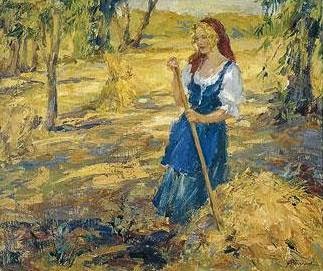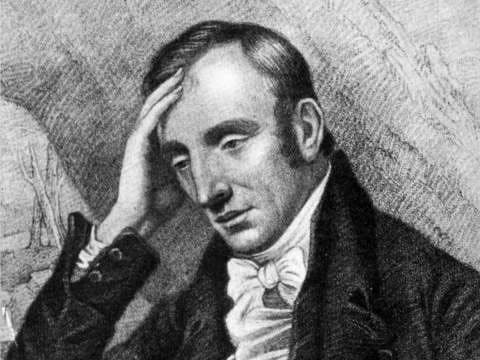William Wordsworth was born on 7th April 1770, in Cockermouth, Cumberland, England. He was a major English Romantic poet who along with Samuel Taylor Coleridge helped in establishing the Romantic age in English Literature with their joint publication Lyrical Ballads in the year 1798. His parents passed away when he was quite young. He was raised amidst the mountains of Cumberland alongside the river Derwent. He grew up in a rustic society & spent a great deal of his time playing outdoors, which he later would fondly recall as a pure communion with nature. His poetry originated from an “emotion of tranquillity” & the poet then surrendered to the emotion so that tranquillity dissolved & the emotion remained in the poem.
Foresight by William Wordsworth Analysis
Wordsworth’s poems initiated the Romantic era by emphasizing feeling, instinct, and pleasure. He gave expression to the inceptive human emotions. Throughout Wordsworth’s work, nature provides the ultimate good influence on the human mind. All manifestations of the natural world from the highest mountains to the simplest flower elevate thoughts & passionate emotions in the people who observe these manifestations. One can simply derive pleasure from these manifestations of nature without having to go elsewhere. The poet repeatedly emphasizes the importance of nature for an individual’s spiritual & intellectual progress. A good relationship with nature helps individuals connect to both the spiritual & the social worlds. In other words, love for nature can lead to a love for the humanity. It is of supreme importance for an individual to stay rooted with nature. It is because people become selfish & immoral when they distance themselves from nature.
The poet also touches upon the splendor of childhood. Wordsworth’s poetry childhood is a magical, magnificent time of innocence. Children from an intense and passionate relationship with nature. So much so, that they happen to be closely inclined to the natural world rather than the human or social world. The poem starts on a floral & joyous note. The narrator imparts a subtle message not only to the young adults but also everyone in general to conserve the manifestations of nature. He addresses his younger sister not to pluck the flowers which shall later bear fruits. These very lines contain the underlying element of the poem that is the “foresight.” The flowers are a symbol of beauty & serve a purpose of its own by bearing fruits.
The poem represents innocence and is represented by the color white which enhances the serenity in the poem. The narrator through his little sister is addressing the reader to preserve & propagate the beauty of nature. There are many flowers the lovely primroses, daisies, cuckoo flower to lofty daffodils. The narrator’s will to save the Strawberry blossoms shows how attached he seems to be with nature. There is a mention of the spring the most beautiful of all seasons. It is spring when the nature blooms in every color and the delicate scent linger in the air. Primroses bloom in spring thus adding more beauty to the rhyme. But, summer seems rather unacquainted with these lovely primroses. The daisies leave no fruits behind after it blooms and thus the poet would be less worried if his young sister plucked them. The change in seasons illustrates how finely the narrator is in tune with nature. The barren violet that remains withered on the ground arouses a poignant emotion in the reader’s heart.
The imagery of the daintiness of these flowers invokes a nostalgic feeling of love for nature. These flowers represent the “totality” & the “uncertainty” of life. It blooms for a specific period of time after which it must die just like us humans. The uncertainty lies in the fact that a kid might pluck it anytime thus limiting its life. Furthermore, it is in the uncertainty that we find beauty. “God has given a kindlier power/To the favored strawberry-flower” in these lines the narrator means that God the Almighty has bestowed a greater power to the strawberry flower which sets it apart from the rest of the flowers. Its specialty lies in its ability to bear juicy berries. Children are very fond of berries and so are the narrator and his sister. So the narrator tells her to have patience so that when the spring has fled these lovely strawberry blossoms can bear berries for them to eat.
These berries will be hanging on every stalk and each with its lovely shade. These lines help in imparting the virtues of simplicity & humility inherent in nature. The strawberry flowers bloom adding beauty to its scenery and later bears fruits without demanding anything in return. It also shows the reader how nature always ‘gives’ unlike humans who become corrupted & act selfishly. This is an important lesson for the reader to learn. This poem is a celebration of the beauty of nature as well as an appreciation for its incessant gifts to mankind. The poem arouses familiar warmth in the reader’s heart with subtle notes of love and appreciation.
Foresight by William Wordsworth Central Idea/Theme
The underlying theme of the poem deals with the lost glory of the childhood days and also explores the themes of preserving the nature. In other words, childhood’s connection with nature which now seems lost. These beautiful memories of childhood can only be preserved in the memory. As children have a very intense and passionate relationship with nature they feel joy at the very simplest of nature’s manifestations. They find intense joy in communion with nature. The poem explores the fascinating world of children at the same time retaining the innocence and splendor of childhood.
The poet also appraises nature and tells the reader to build an intimate relationship with nature. It is through connecting with nature that we can really connect with ourselves. As humans grow older they lose their connection with nature and are unable to appreciate its beauty. This poem is a reminder to appraise the bounty nature. The vivid use of imagery adds to the exquisiteness of the poem. The flowers in the poem symbolize the elegance and delicacy of nature. Human’s innate empathy & nobility of spirit is raised when they are finally in tune with nature. Nature is most often compared to a mother for both are gentle, compassionate and never tire of giving. Through this poem, the poet teaches the reader to build a warm respect for “mother nature”. People who spend a lot of time in nature retain the purity and nobility of spirit. Thus it helps to foster a loving and kind attitude towards nature and humanity in general. The poem ends on a cheerful note leaving a trace of nostalgic childhood memories of frolicking in nature.
Some online learning platforms provide certifications, while others are designed to simply grow your skills in your personal and professional life. Including Masterclass and Coursera, here are our recommendations for the best online learning platforms you can sign up for today.
The 7 Best Online Learning Platforms of 2022
- Best Overall: Coursera
- Best for Niche Topics: Udemy
- Best for Creative Fields: Skillshare
- Best for Celebrity Lessons: MasterClass
- Best for STEM: EdX
- Best for Career Building: Udacity
- Best for Data Learning: Pluralsight











